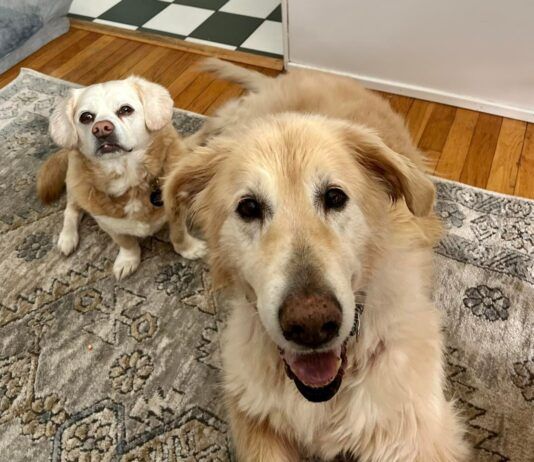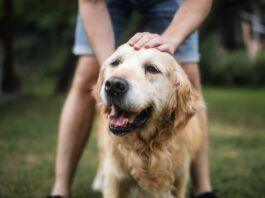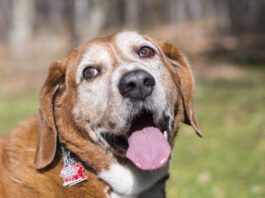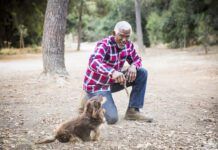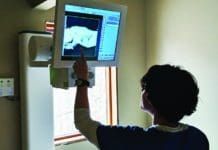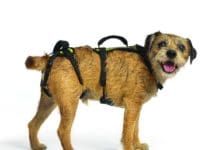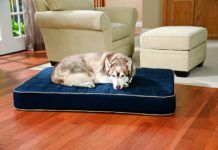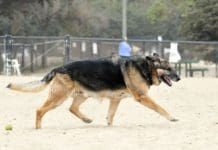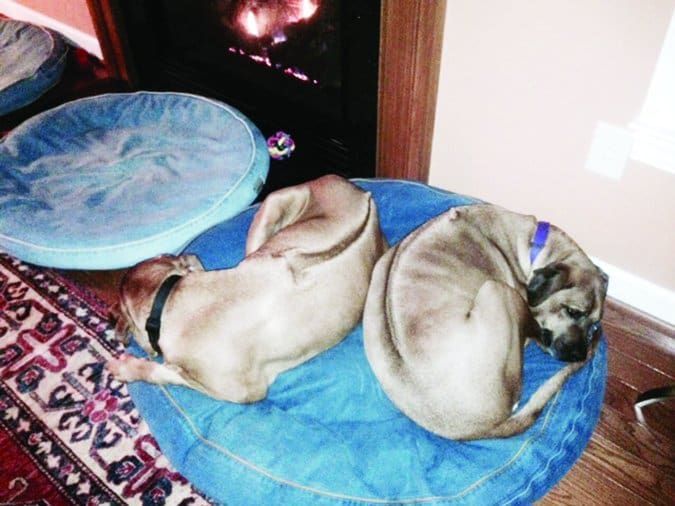Grieving Our Losses
While we all know that the death of an old dog is inevitable, and we may have even told our friends that we’re prepared for it, when death comes, our loss isn’t any less painful or easier to accept.
Should You Shave Your Dog? Shaving Against Advice
Grooming experts almost always advise against shaving double-coated dogs – but it can really help some overheated senior dogs cool down and feel better in the summer.
Vitamins for Senior Dogs
The best senior dog vitamins are the ones your dog needs and that have an NASC seal on them.
Physical Exams for Senior Dogs
There are a number of ways that we can stay on top of health issues that creep up on our dogs with age. Annual veterinary visits are a staple in every healthy pet's life. A comprehensive physical exam from nose to tail is step one in picking up clues to underlying concerns at every age, but it becomes even more important in the senior years.
The Best Pet Steps for Senior Dogs
Older dogs tend to develop mobility issues, whether from arthritis or injury. Many aging dogs will experience increased difficulty getting on and off furniture, in and out of cars, or up and down steps. Quality pet stairs come in many styles and prices. A small stepping stool designed for pets could be just what your senior dog needs to continue living comfortably!
Fitness for Aging Dogs
Many clients bring their aging dogs to me for private sessions because they have started having difficulty or reluctance with or can no longer perform normal life activities like climbing stairs, getting into the car, or walking on smooth flooring. These problems are often related to muscle atrophy in the hind end. Once the dogs get the all-clear from their veterinarian, we work on fitness exercises designed to rebuild hind-end strength; we increase the difficulty of the exercises slowly over time until more function returns.
10 Weight Loss Tips for Senior Dogs
Older dogs, like older people, have an easier time getting around if they aren't overweight. Losing weight can be a challenge for dogs at any age, but more so as dogs grow older. Still, weight loss for dogs is worth the effort. Slender dogs not only get around more easily, but also actually live longer. A 14-year study showed that dogs fed 25 percent fewer calories than their free-fed littermates lived nearly two years longer, showed fewer visible signs of aging, and enjoyed an extra three years of pain-free mobility before developing canine arthritis.
Disabled Dogs Products
If your dog has arthritis or is recovering from an injury or has a condition that restricts her range of motion, a variety of assistance devices ranging from simple to sophisticated can help her live a more comfortable, active life. Steps and ramps are affordable, portable aids for dogs who need help getting onto or off of furniture or into and out of vehicles. For dogs with neck or spine injuries or osteoarthritis, elevated food and water bowls may help reduce pain (or anxiety about pain) from reaching down to eat or drink from low bowls.
Exercise Your Senior Dog
Exercise is essential for dogs of all ages. It helps maintain muscle tone, a healthy weight, joint flexibility, good circulation, and overall health and happiness but when movement causes pain, it's only natural to slow down or stay still. That creates a vicious cycle in which inactivity contributes to pain, pain reinforces inactivity, and the dog's health deteriorates.
The Best Orthopedic Dog Beds
We gathered nine high-end, medium and large dog beds that were marketed as orthopedic
10 Ways to Make Your Old Dog Comfortable
Sometimes we don't want to admit our dog is aging. We ignore the graying muzzle and scoff at the idea of a senior dog food." After all
Tips on Adopting a Senior Dog
When my husband asked me to come to the shelter where he worked to meet the 8-year-old Australian Shepherd he had fallen in love with and wanted to adopt, of course I said yes. When Paul first met Missy, she threw herself on her back at his feet, and he was hooked. When I saw her striking red merle coat, her stunning odd eyes" (one brown


